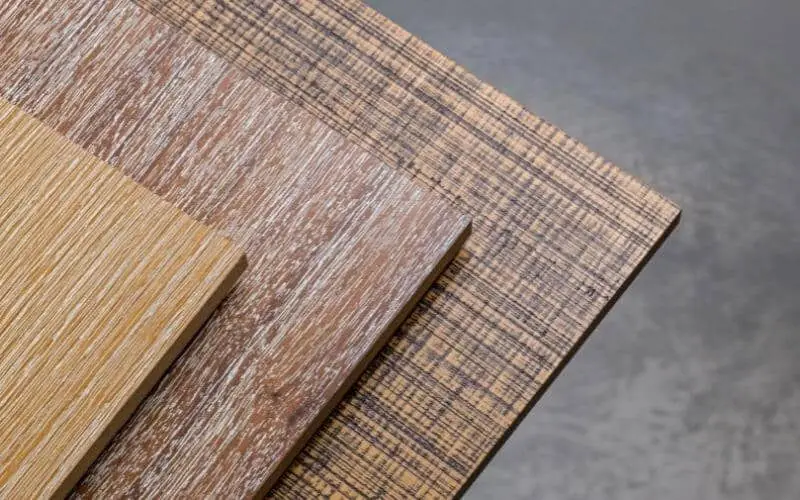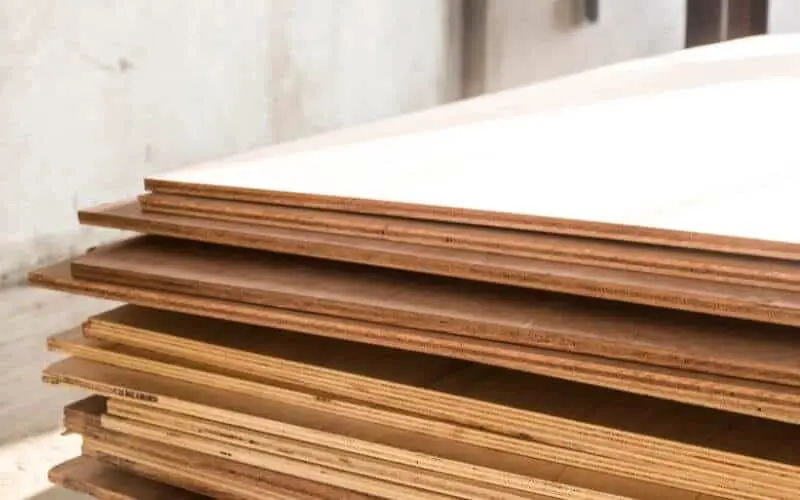There has been a recent shift from the use of hardwood to plywood. You might wonder, why is that so? Probably because plywood is environmentally friendly and affordable.
When compared to the price of other flooring tiles or board, plywood should probably rank top in terms of affordability, making it a major advantage when you think of plywood floors’ pros and cons.
Although, when compared in terms of strength and durability, plywood might not exactly be compared to the quite durable hardwood. Fortunately, plywood comes in different grades of thickness.
Thus you can get a suitable choice for any purpose. This post will provide a more in-depth explanation of the pros and cons of plywood floors.
Read: Pros and Cons of laminate flooring
What is Plywood Flooring?
Table of Contents
Before getting into the pros or cons of plywood flooring, we will briefly explain what it is. Plywood is a piece of wood made up of thin layers of veneer sealed together at various thicknesses. The wood can be used for flooring, cabinets, and other vertical surfaces.
Plywood floors come in different grades of thickness and various designs, which makes them perfect for any project you’re embarking on.
Sometimes, plywood is used to make the sub-floor for other flooring boards like hardwood flooring, bamboo, or covered with a layer of linoleum or carpet.
Your use of plywood as a flooring tile or board should be dependent on the purpose of the room. For instance, plywood floors are perfect for office space but might not be ideal for the basement, kitchen, or bathroom since the floorboards don’t exactly thrive in a moist environment.
This post will further highlight the pros and cons of plywood floors which help you decide.
Read: Maple flooring pros and cons
Pros and Cons of Plywood floors
As mentioned earlier, your use of plywood floors should be based on its purpose. This means that while plywood floors might be perfect for one use, they might not be ideal for another use. Below is an outline of the pros and cons of plywood floors.
Pros Of Plywood Floors
Below are the advantages of using plywood floors:
1. It Is Affordable
It has been said before, the price of plywood floors cannot be compared to the cost of other flooring tiles (like hardwood, bamboo, and cork floors). This makes plywood a cost-effective one that can easily fit into your budget.
In addition, there are different grades of plywood in terms of thickness and quality, which means that you can easily choose one that accommodates your budget.
More so, the cost of plywood is installation is comparatively cheaper when compared to the cost of other floor installation. If you want to cut down on cost, you can easily install plywood floors yourself without hiring a professional.
2. Flexibility
This is one reason why many consumers are shifting to plywood. Not only can you install plywood floors yourself, which will end up cutting down the cost for you.
You can also easily patch up plywood flooring by replacing damaged sections or replacing the existing plywood by installing a new plywood flooring over the old one.
With the variety in the designs of plywood flooring, you can easily get the one that suits a particular room.
Read: How to install linoleum flooring
3. You Can Install Plywood Yourself
Thinking of a fun home project to embark on, well, think no further! You can easily replace your worn-out floors by installing new plywood by yourself.
Yes! You don’t need to pay a professional installer, while a quick search on the net will give you all the information you need on how to install plywood flooring.
4. Water Resistance
When compared to other flooring tiles like bamboo, we discover that plywood is highly resistant to water.
This is probably because layers are so tightly packed and bonded with adhesive and thus makes it difficult for water to seep in between these layers.
Cons Of Plywood Floors.
As said, everything with an advantage will probably have a corresponding disadvantage. Below are the cons of plywood floors:
1. It Is Not as Strong and Durable as Advertised
While it is usually advertised that plywood is strong and durable, in reality, it might not be as durable as in theory.
Not only is plywood prone to scratches, gouges, and dents, it tends to be weak and needs reinforcement from below.
You might not comfortably have a pet or walk on high heel shoes because of the less durable nature of the plywood.
2. It Affects the Sellability Value of Your Property
It has been rumored that a house with plywood flooring doesn’t sell out as fast as you think, probably owing to the less durable nature of plywood flooring.
This disadvantage might not hold much water if you plan on living in your home for quite some time. However, if you’re thinking of selling your house anytime soon, you might want to pause on the choice of installing plywood flooring.
3. Plywood Has Loose Knots
This disadvantage is related to the less durable nature of plywood floors; as mentioned before, plywood is made up of many thin layers of wood and is knotted in the middle.
The knot is usually the plywood’s weakest point, which means that if anything happens to the knot, the remaining wood just falls out. In some cases, the center of knots falls out, leaving a less attractive center behind.
Read: Pros and Cons of waterproof laminate floor
How Long Does Plywood Flooring Last?
We believe that you are well articulated on the pros and cons of plywood flooring. The question, however, hovers, ‘how long does plywood flooring last?’ the answer to this question, of course, is dependent on the grade of the plywood and the purpose it is used for.
While it is almost impossible to ascertain the lifespan of any wood accurately – the lifespan depends on how the plywood product is used, how it is installed, and its quality.
Plywood floors, such as T-111 should last for at least 35 years provided it is appropriately finished,
Plywood used for smaller spaces such as the kitchen storage or the closet can last virtually forever provided it doesn’t experience much wear and tear.
The quality of the plywood plays a significant role in determining the lifespan. It is recommended that you go for plywood made of hardwood such as walnut and oak as they are more durable.
Read: Pros and cons of vinyl flooring
Conclusion
Now that you have learned about the pros and cons of plywood floors, you know that while installing plywood floors is relatively inexpensive, it is highly vulnerable to damage. It follows that the use of plywood should be based on the purpose of the room.
For instance, plywood is best appreciated in office and closet spaces rather than in the kitchen or front porch. This is because while plywood is water-resistant, it is not waterproof. Excessive moisture can easily damage the vulnerable wood.

